Ottawa Teacher diagnosed with major depression. What happens next?
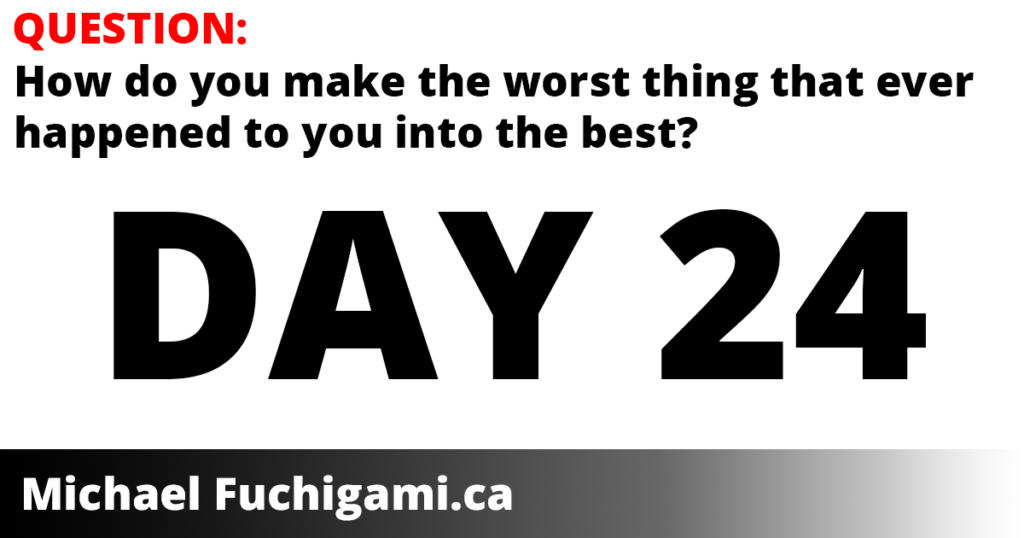
Don’t be ashamed of your Mental Health story. It will inspire others.
Quote Source: HealthyPlace.com
Today is an epic day. I was diagnosed by a psychiatrist with major situational depression.
Apparently, insurance companies really like this code because it’s clear cut for coverage. But, that doesn’t matter as I’ve already resigned from my Grade 8 teaching job at Longfields Davidson Heights in Ottawa, Ontario. (24 days ago, in fact.)
Why would I choose to quit from the Ottawa Carleton District School Board when I love teaching so much? I know, right? Click here to find out when I finally do talk about what happened to me at work.
Short on time? No problem.
Here’s the table of contents:
- PART 1: So, why is a diagnosis of major depression by a psychiatrist a great thing for me?
- 1. I have concrete steps to move forward.
- 2. I have a name for my mental health challenge.
- 3. The best part of today was learning that I wasn’t alone.
- PART 2: The importance of teaching equity and diversity in the classroom:
- As teachers and principals, it’s very easy to say in the classroom, we’re all the same – we’re all humans, or I’m colour-blind: I don’t see race.
- What assumptions are we making based on our personal experiences, individual bias and cultural narrative?
- As teachers, we need to look at the texts we use in the classroom.
- I think exploring and challenging stereotypes is important in the classroom.
- Thinking about diversity is especially important if we’re from a power group.
- How do you teach the difference between equal and fair in the classroom?
- PART 3: Why would I admit that I have a major depression to the world?
- The importance of modeling resilience in the classroom.
- I am not alone.
- How often do you hear about teachers admit to having mental health challenges and struggles?
- You are not alone.
- So, what am I doing about it?
- So, what are you doing about it?
- PS:
So, why is a diagnosis of major depression by a psychiatrist a great thing for me?
Here’s why:
1. I have concrete steps to move forward.
Certainly, medication is not for everybody, but in my case, the psychiatrist recommended that I switch from the generic brands of my prescription to the name brand drugs. Apparently, there is a significant difference in my case.
The psychiatrist pointed me towards innovicares where you can show your pharmacy a magical card, and only pay the generic price while getting the actual name brand medicine.
It’s funded by a group of pharmaceutical companies. Thanks, big pharma!
2. I have a name for my mental health challenge.
The psychiatrist clarified that I had a severe depressive episode. It’s nice to have a name to an injury.
Apparently, the depression will go away when the stressors are gone.
The road to recovery is a long journey. One moment at a time…
3. The best part of today was learning that I wasn’t alone.
I’m not nuts. I’m not alone, even though I sometimes feel that way because I’m told that I’m the only person that has come forward and admitted they feel this way.
The way I feel is typical of people going through depression and what I am going through is apparently pretty typical of “Asian” type depression.
The psychopharmacologist I met with does clinical trials in multi-ethnic Canada and explained to me that different ethnicities experience depression differently.
It seems that [some] people of Asian descent get depressed with paranoia, and respond differently to medication. This is typical.
So, I looked it up:
“East Asian people also tend to possess genetic profiles that make them respond very differently to the antidepressant and antipsychotic drugs developed to help bring relief to Westerners.”
“In general, most Asian patients respond to lower doses of psychotropic drugs than Caucasians,” says Keh-Ming Lin, who heads the Division of Mental Health and Drug Abuse Research at the National Health Research Institutes in Taipei, Taiwan. In some instances, the dose can be halved”
Source: Nature
But, of course, there are always exceptions to the rule:
Although many Asians metabolize psychotropic drugs slowly, some Asian patients are normal or extensive metabolizers at the responsible metabolic pathway for the clearance of the drug and so will have near normal dose levels.
Lower final dosages should not be strictly assumed for every individual Asian patient because some may require the full typical doses.
Source: Western Journal of Medicine
Why is this information great?
The importance of teaching equity and diversity in the classroom:
Because it stresses to me that colour and diversity matters.
I believe in equity education which is the idea that fair and equal are different things. Equal inputs and supports do not necessarily produce fair outcomes for any number of reasons.
Knowing that my paranoia is the result of depression and I’m experiencing something typical of Asian depression, reinforces for me the importance of cultural proficiency, and an understanding of the difference between equity and equality.
As teachers and principals, it’s very easy to say in the classroom, we’re all the same – we’re all humans, or I’m colour-blind: I don’t see race.
And yes, that’s true. Everyone should have equal opportunities to achieve success. (Note: equal opportunities, not necessarily equal access to resources. )
However, there are important differences between cultures and environments, and if we think our students are all the same, then what are we missing?
What assumptions are we making based on our personal experiences, individual bias and cultural narrative?
As teachers and administrators, if we are cisgender, do we assume that all of our students are cis as well?
Do we ever separate activities by gender because we have a binary male-female view of gender? As opposed to a more fluid or non-binary view of gender?
Hey I’m guilty of this too. Early in my career, I wasn’t aware.
And later in my career, even when I am aware, I still made mistakes and assumptions. Or, I chose to not address teachable moments because I was short on time in my lesson, or I was afraid of parent-push back, or lack of admin support. I get it.
These things can be a political game, and you have to pick and choose your battles.
As teachers, we need to look at the texts we use in the classroom.
Are there any patterns?
Are there any groups of people who are invisible in the resources we use?
Do we only use resources with strong Black protagonists during Black History Month?
No, I’m not perfect either.
- Even though I think a lot about equity, I make lots of mistakes and stereotypes. We all do.
- And sometimes, even though my intent was to challenge stereotypes, the impact I had was the opposite and I simply reinforced [other] stereotypes.
Novelist Chimamanda Adichie calls this the Danger of a Single Story – the idea that we reduce groups of people into a single idea when we tell one version of a story, over and over again. And yet, dispite being such an advocate for deconstructing stereotypes, even she falls guilty of them.
The point is, we’re all human:
I remember walking around on my first day in Guadalajara, watching the people going to work, rolling up tortillas in the marketplace, smoking, laughing. I remember first feeling slight surprise. And then, I was overwhelmed with shame. I realized that I had been so immersed in the media coverage of Mexicans that they had become one thing in my mind, the abject immigrant. I had bought into the single story of Mexicans and I could not have been more ashamed of myself.
Source: Chimamanda Ngozi Adichie (time – 8:54)
I think exploring and challenging stereotypes is important in the classroom.
As teachers, we can do this by providing a variety of stories to break the singular narrative that we see in stereotypes.
Or, as Olivia the Fairy Princess puts it,
“Why is it always a pink princess? Why not an Indian princess or a princess from Thailand or an African princess or a princess from China?
There are alternatives.”
SOURCE: Ian Falconer
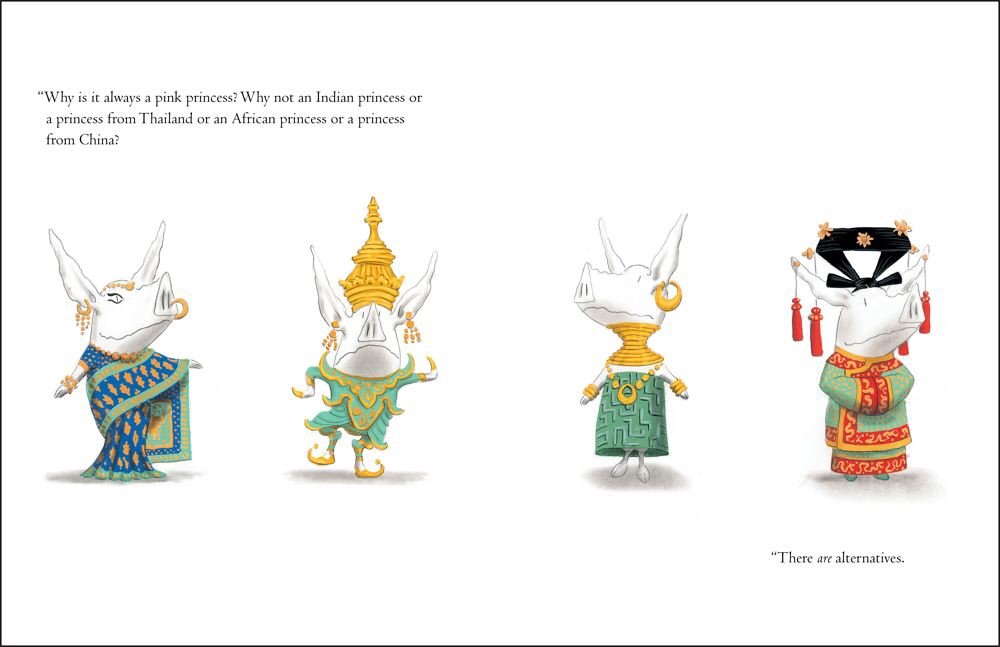
Thinking about diversity is especially important if we’re from a power group.
If we have power, then we have the opportunity to choose to use our voice for people who don’t have a voice.
What’s power? Here’s an example:
It’s awful being a kid, no one listens to you.” – Lisa Simpson
“It’s rotten being old, no one listens to you.” – Abe “Grampa” Simpson
“I’m a white male, age 18-49, everyone listens to me, no matter how dumb my suggestions are.” – Homer Simpson
Source: Simpsons
Having said that, our identity includes different aspects: race, gender, age, sexual orientation, socio-economic status, etc
We might be from the “majority” in one aspect, and be in a “minority” in another aspect.
How do you teach the difference between equal and fair in the classroom?
I’m glad you asked. This is really a conversation about empathy, fairness, and what it means to be a citizen.
I think the way to ease students into conversations about fairness is to start with a few simple debates:
- Talk about choices we make (i.e. which snack do you prefer: chocolate or chips?)
- Talk about “choices” we are born into (i.e. left or right handedness… if you’re left-handed, you experience the world differently from right-handed folk. This is an example of personal bias and right-handed privilege.)
- Talk about empathy
- Talk about fairness
- Get into heavier debates: (which is a bigger issue: racism or sexism?)
I included this idea about fairness and equity in this Citizenship lesson package which you can get here. It has OVER A WEEK of lessons to do with your class to help your students understand empathy, fairness, and community through 17 debate questions.
Why would I admit that I have a major depression to the world?
Let’s be real here. Mental health challenges come with stigma:
- You feel alone.
- You feel isolated.
- You feel embarrassed.
- You’re worried about how other people will treat you.
- You’re worried about how employers will treat you.
- You’re worried about how your public declaration will impact your family.
- Etc.
So despite the stigma, why am I choosing to blog about my struggle with depression?
In for a penny, in for a pound.
My goal is to get through these dark times by helping others build grit, tenacity and resiliance.
The importance of modeling resilience in the classroom.

I am not alone.
My diagnosis of major depression came with the reassurance from a medical specialist: I am not alone.
The paranoia I’m feeling is something that other depressed people have felt. This is typical. My reaction is typical.
There’s nothing wrong with being different. That’s what we tell our kids, and our students.
But, when you’re the only one who is different… when you feel like you’re the only one going through this challenge, well, that’s tough.
We talk about the “power of one” in the classrom – that one person can make a difference. Be the change. We give stories of people who have done this.
But when you’re the only person standing up and speaking out. That’s tough. I’ve broken down and cried so many times these past few months. The world needs more first followers to stand up and show it’s okay to support others.
Although it (might) seems like everyone else around me is “fine” on the outside, it doesn’t necessarily mean we’re fine on the inside.
Or, sometimes we’re fine… but not all the time. We’re works in progress, and life goes on. This is what it means to have a growth mindset.
How often do you hear about teachers admit to having mental health challenges and struggles?
Our students and children struggle with all sorts of challenges, sometimes ending in silent, unexpected tragedy.
How often do our students see us teachers struggle through and emerge victorious on the other side?
Do our students see themselves reflected in their teacher? Their principal? Their school board superintendents, director, or trustee?
If I was still teaching in the classroom today, I’m not sure I would be comfortable admitting my mental health challenges.
- I’d be afraid of getting bullied by students.
- I’d be afraid of what the parents might think.
- I’d be afraid it was a career limiting move.
But, as teachers, it’s also important to be role models for our students.
- We don’t know all of the answers, and that’s okay.
- We make mistakes, and we keep on learning.
- We work through anxiety, and depression, and other challenges. And that’s life.
We need to model a growth mindset so our students can have a blueprint of what it means to struggle through a challenge, and grow stronger.
Something traumatic happened to me at school.
And I need my daughter, my students, and other people to know that you can have the wind knocked out of you, and still figure out a way to keep going.
The struggle is real.
As a Grade 8 Media Literacy teacher, I know how media can be constructed to present a specific message. And, I need to be part of a positive message showing the internet that we can get through mental health challenges.
You are not alone.
Kids need to know they are not alone. Adults struggle with challenges and mental health obstacles, too.
Students get bullied in grade 8 all the time. They get teased because they’re different. Sometimes, they feel like they don’t fit in. They’re all alone.
But that’s also life. Adults get bullied at work all the time too. There are awesome people everywhere, and jerks everywhere. We know this.
One of the great things about going to high school, is that it’s a bigger pond with more fish. And it’s a little easier to find your niche and people with your brand of humour and your flavour of life.
But not everyone finds their crew in high school. Some of us have to wait to find our people in university or college. Bigger pond. Even more fish.
The point is, we need to find our people. And the internet is the biggest pond of them all.
The challenge with mental health struggles is that we wear a mask to hide our pain.
We don’t know who our people are. We don’t have role-models to show us that we can get through the pain.
Instead, we have 13 Reasons Why raising our children and students.
So, what am I doing about it?
Well, this Ottawa teacher who is experiencing a major depression right now quit his job. What is he doing now?
He’s making his story public.
The story isn’t finished yet. But, it’s an important story that needs to be heard. (It might be an epic fail for a while, but eventually, I’ll find a way to win.)
In a world of 13 reasons why…
- We need more stories about people who struggle with mental health challenges, and win.
- We need more stories about people who don’t struggle with mental health challenges, and win.
- We need more stories about people who struggle, and win.
We need these stories about grit, tenacity, and resilience. If we use strategies, make the effort, pay attention to results and optimize what we’re doing, and if we tinker a little bit, eventually, we can win.
I made a free Goal Setting Slideshow Lesson for Students. Parents and teachers should check it out.
So, what are you doing about it?
Great question. If you need ideas, click here to see how you can help.
Or, share this post on your social media to spread the word:
[social_warfare]
Cheers, Mike
(Day 24)
PS
Example of Tinkering:
Is the title, “Ottawa Teacher diagnosed with major depression. What happens next?” a little click bait-y? Absolutely!
I was inspired by some of those ads you see at the bottom of websites. But, click bait-y titles must work on some level, or people wouldn’t write them.
This is an example of tinkering.
Tinkering is about wondering, exploring and doing little experiments that will probably fail, but every now and then, something succeeds and it’s epic. You just need to learn from the failed experiments. Let’s see what happens.
Example of the Writing Process:
Note: The first draft of this post was originally written on January 24th. After a few weeks of revising and editing, it was first published to the interweb on Feb 9, 2019.
Hey students… this is what the writing process looks like. Sometimes writing takes time to germinate.
Plus, from a media literacy perspective, we probably want to think about what image we are portraying to the world. We can control the message, and be intentional in what we do.
So, I spent a lot of time thinking about what I wanted to say – especially since the internet remembers everything – kind of like a fart. Once you fart in class, you can’t stuff that fart back in. And, everyone in class will remember that moment.
But, the real question is how do you turn that embarrassing fart moment into a win?
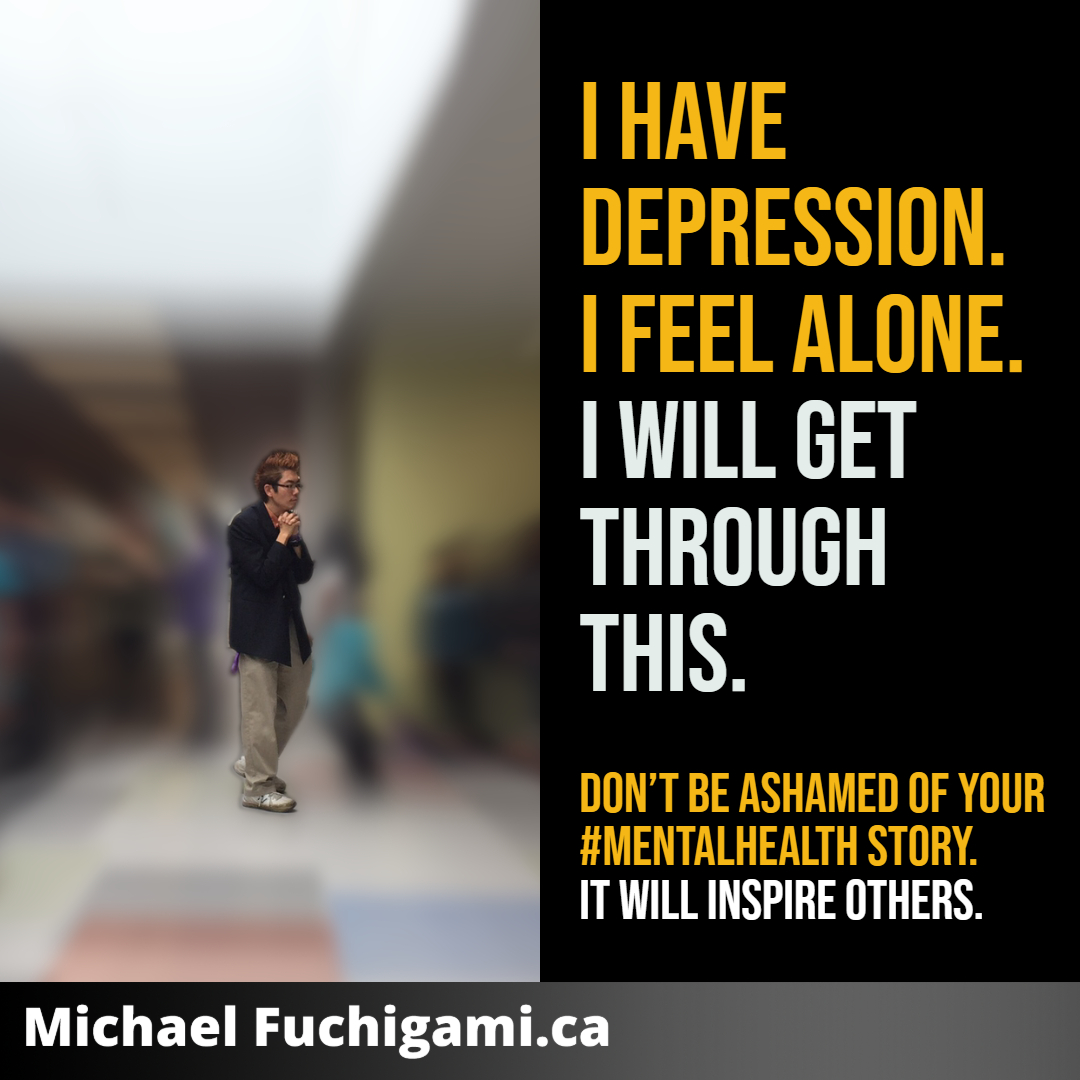
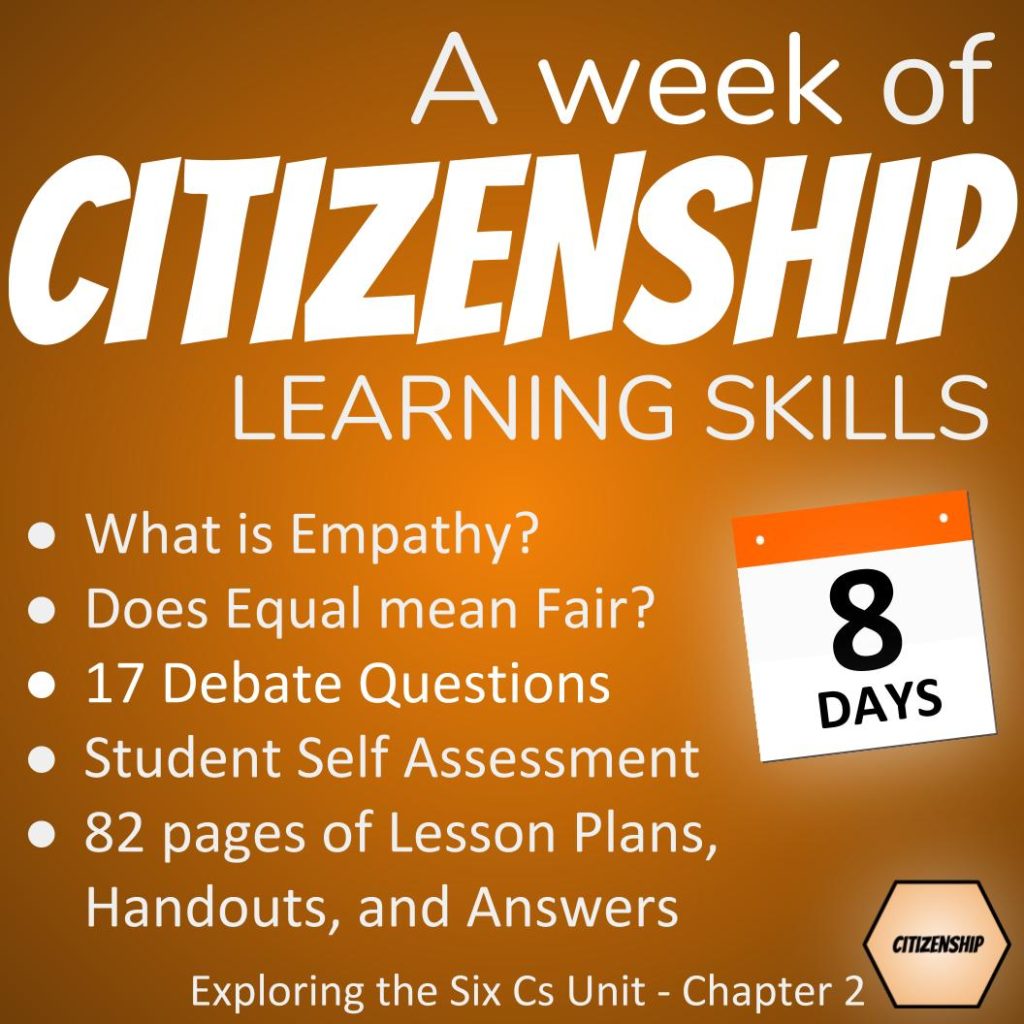

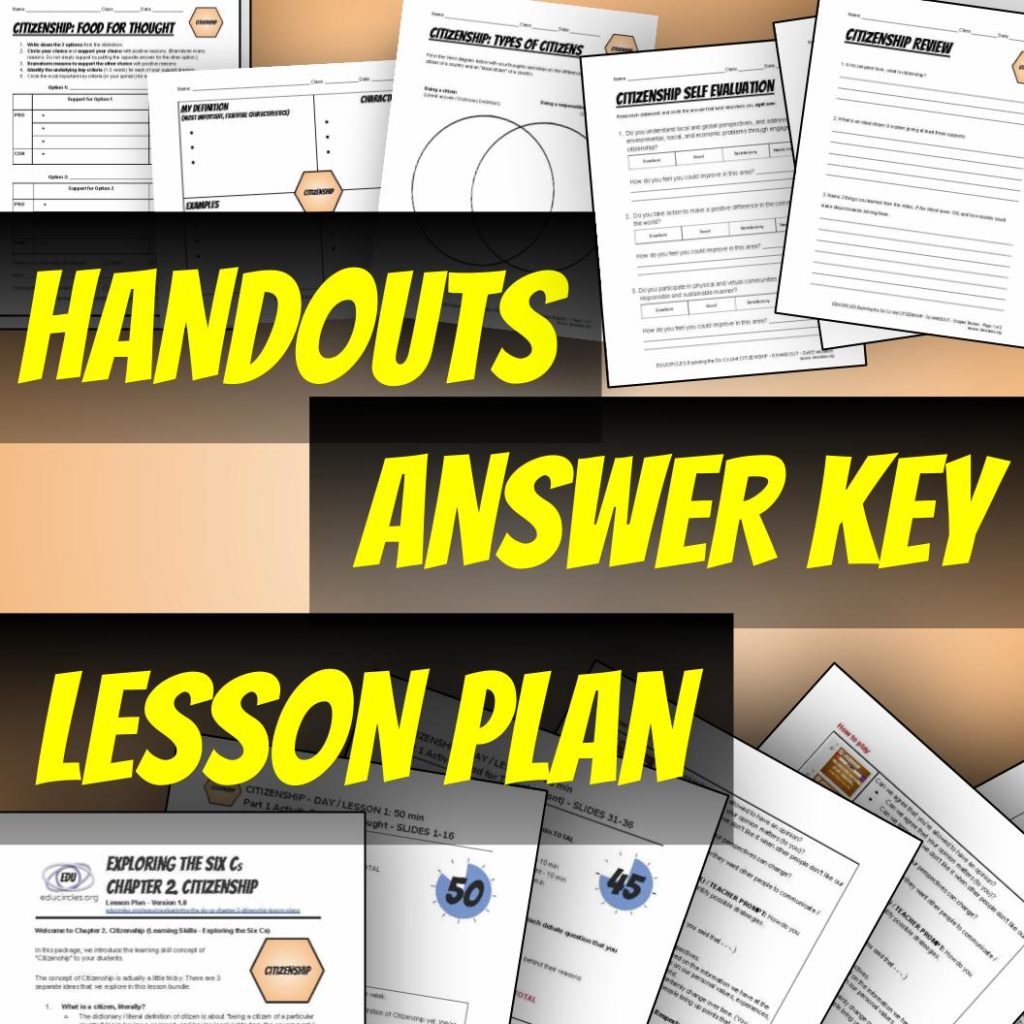

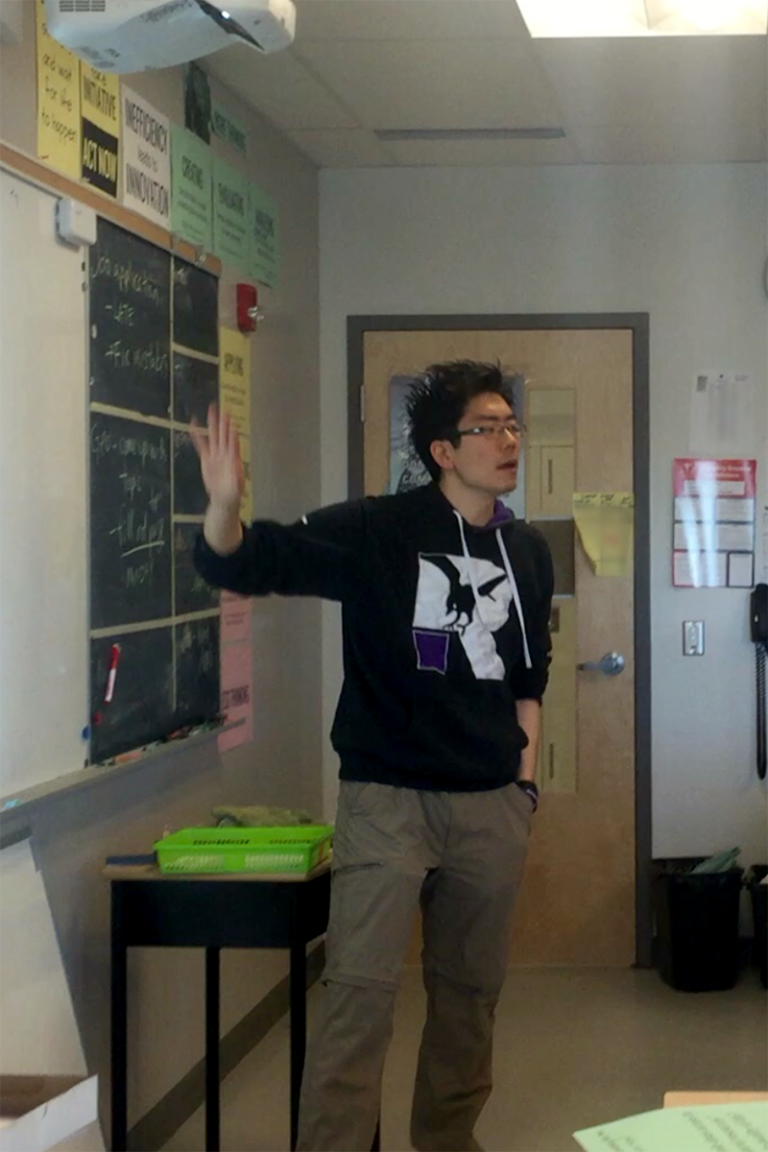
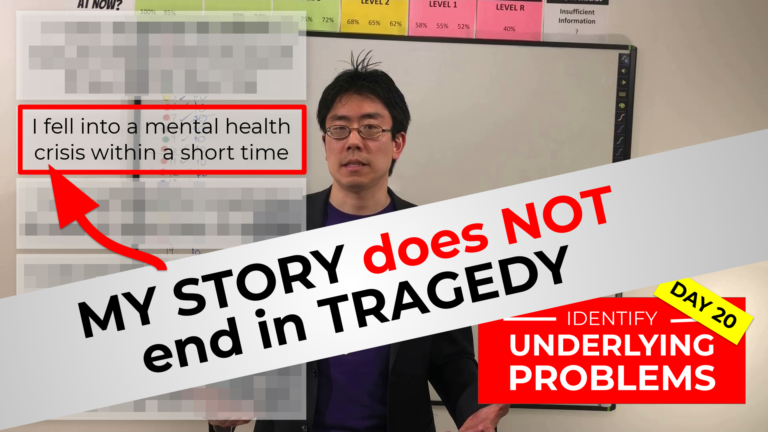
I was deeply impressed by your brave decision to get through these dark times by helping others build grit, tenacity and resiliance.
I agree with your statement, “We’re works in progress, and life goes on. This is what it means to have a growth mindset.”
Thanks Mom and Dad, I know this can’t be easy to see your son struggle through this. I appreciate all of your support. Love, Mike
Mr Fuchigami,
My name is Zizo, and I had the privilege of being in your grade 8 class many years ago – the notorious “All Boys class”. I’m currently in my second year of Nursing at the University of Ottawa, and I was sent your website and article by a friend who you also taught many years ago.
I wanted to reach out to you and thank you, not only for the lives that you will reach out to through this article (because believe me, students are circulating it as we speak), but to thank you for the lives that you have already impacted through your time at LDHSS.
I say this from the bottom of my heart: There has been no teacher to this day that has taught me as much as you have. It was the little things that I still remember today (and that many of my good friends from the all boys class remember too, think of Taha, Iby, Derek, Rhys, etc..). It was how passionate you were about us learning instead of just trying to pass or get a good grade for the sake of the grade. It was how you never gave up on us as individuals and as a class, even though that was easily the worst behaved class in LDH history. It was how you weren’t afraid to cry when you talked about your daughter and how much you loved her. Its these things that I remember, and that have led me on such a straight and focused path, even with all the ongoing distractions.
I gave a presentation in Calgary on January 25th, 2019, well before I knew of your website, and before this article was posted. The presentation was on leadership, specifically in the context of ManUp; you may be familiar with ManUp, it was an initiative that started at LDHSS to raise awareness on violence against women. I went through an exercise with the audience called the “Manliest Man Exercise”, where I had them describe the most stereotypical “manliest man”, then I presented a contrasting view and asked the audience describe the man who has “had the most positive impact on their lives”.
Keep in mind that I had not seen this article, or your website leading up to my presentation, but I spoke to this Calgary crowd last month about YOU, being the man who had the most positive impact on my life. At such a vulnerable and easily impressionable age in our lives, you taught me key values like leadership, entrepreneurship (remember BassBook?), the ability to show emotion, and the value of education all within a year. Without your leadership and ability to keep faith in the all boys class and its students, you set me on the right path, and I cannot thank you enough.
I can promise you that there are hundreds of students with these same thoughts going through their mind, but you deserve to hear a first hand account of how incredibly influential you have been to me and my friends.
You have never backed down from a challenge, and I don’t expect that to change . Thank you for being the right influence at the right time, to me and so many others.
Zizo Aldaqqaq
Thanks Zizo for taking the time to write this thoughtful comment. It brought tears to my eyes the first time I read it, and I still have trouble reading it a month later. It’s taking me a while to compose a response.
Your words are, hands down, the most meaningful gift I have ever received in my teaching career. I had no idea I had such an impact, and I’m proud of you standing up with ManUp, in Calgary, and in life in general.
Yes, I remember BassBook. (I’m pretty sure I have some wristbands as a keepsake somewhere…) It was a pivotable moment in my teaching career and it directed my classroom program towards entrepreneurial learning. You talk about the impact I had on your class, but I would argue that your class had an equally meaningful impact on me as a teacher, and a person.
Thank you for having the courage to write this public comment. I appreciate your support. It means more to me right now than you can imagine.